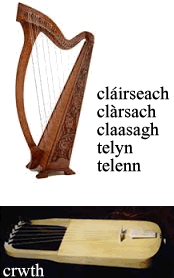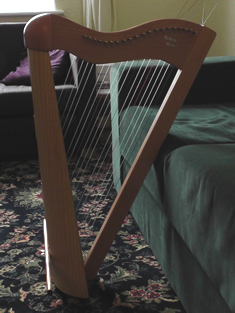Last week in Ireland on the last night of the course each class played some tunes, did a sketch, sang songs, and/or did some other party piece. One of the Irish language classes did a sketch about a bunch of unruly school kids whose class was being visited by an inspector, played by Paul Kavanagh, Irish Ambassador to China. When the inspector turned up and he introduced himself as a “cigire scoile” (school inspector), and I processed the word cig in cigire as the Welsh word for meat. So at first I thought he was the school butcher, which would be cigydd ysgol in Welsh, though that made no sense in the context. I soon realised that he was an inspector, but it took a while for my mind to accept that word cigire had nothing to do with meat.
Incidentally, the Irish word for butcher is búistéir or feolaire, and feoil is meat.
Do you ever suffer from cross-language confusion?

